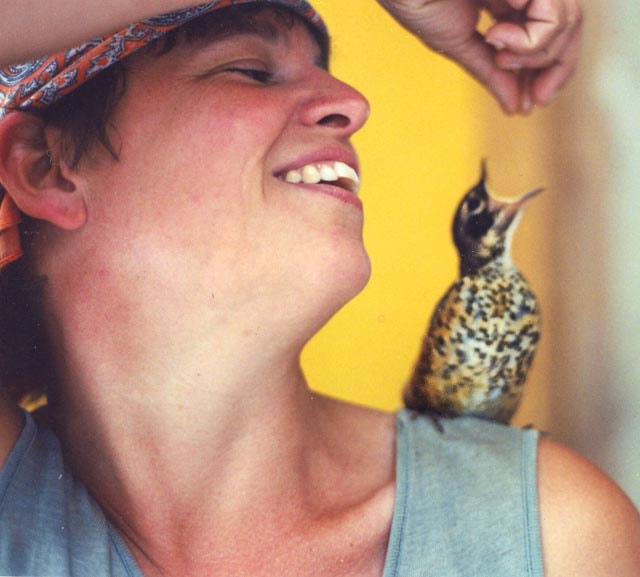|
The farmhouse door opens as though by a gust of cold and the mother, at the cook stove stirring porridge, turns to see the neighbour girl is there, in her hand-me-down dress and thin coat, her boots and bare legs, her sharp black eyes. "Ma said daddy might have killed himself with the gun in the shed. She wants somebody to go see."
The mother turns to her oldest boy, eleven, "You go look. Go see what happened." The boy and the girl cross the fields. The hard crust of snow holds each step briefly before they break through into the softer underbelly. The crust pushes the boy's trouser legs up and rasps against his shins. The girl's legs are already raw. "Why don't your ma go look," he says. "She don't want to." The boy breaks off a chunk of crust the size of a shovel blade and sends it skimming over the surface where it shatters against a post. He whistles lightly through his teeth a song he heard on the radio. He thinks it's called Nine Pound Hammer and he has tapped its rhythm all week, with his spoon on his porridge bowl in the morning, with a nail on the on the milk pail in the barn, with the axe handle on the lake ice where he goes each morning before light to break the new skin and draw water for the house. He snaps off a stem of teasel and holds it up. "If it was dark and we had to see we could light this for a torch. "Wouldn't burn long," says the girl. "Burn out before you got to see what you meant to see." "I'd smear it in bacon grease. It'd burn like a candle," he says. "Then the fat would melt and run down your arm and you'd get burnt." He shrugs and throws the weed into the bushes. Coming out the other side of the sumac meadow they see the house. It leans slightly. Smoke rises from the chimney. A bony mongrel barks four times, it's breath hanging over it like thoughts. "In that." The girl points to a shed across the paddock. It has a plastic window and a sheet metal roof. It has one set of tracks leading too it. He sends another disc of crust skittering across the surface. "I'll go look," and the girl waits behind, hugging her thin arms around herself. Placing his feet in the girls fathers footsteps he makes his way toward the door. His awareness circles him. He feels his raw shins burn, he feels winter in his nostrils and on the precise round surface of his eyes, the strain in his groin as he tries to match his step to this man's longer stride, the scrape of the door where the floor has heaved up, the muscles beneath his eyes pull into a squint in the dim shed. In the house the girl's mother sits with a cat in her lap. Her fingers are still and light on its fur. She stares out the window into the bones of a lilac bush. The boy says, "It's a real mess, missus. There's blood and stuff all over the walls and floor. He done a real sure job of it." He doesn't know how else to say it. She looks slowly through the room as if fingering through fog - the upper edge of wainscoting, dusty jars of plum preserves and pickles on a shelf, the map-like edges of a water stain on the wallpaper, coming to rest on a blow up punching bag with foolish painted features and weighted in the bottom to keep it popping upright with every blow. It was the only gift for the children that Christmas. "His last breaths are in that dummy," she says. Returning home across the fields the boy retraces his footsteps, gathers them in, cancels them.
2 Comments
|
AuthorJay Rainey is an artist living on an island in British Columbia, Canada. Archives
October 2021
Categories
All
|

 RSS Feed
RSS Feed